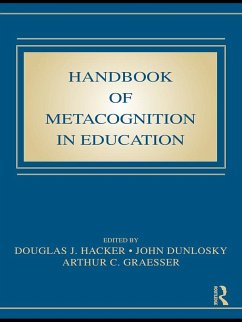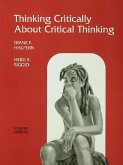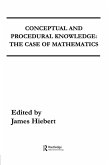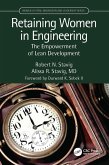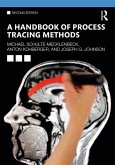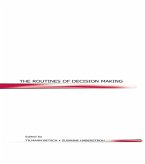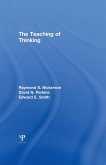Handbook of Metacognition in Education (eBook, ePUB)
Redaktion: Hacker, Douglas J.; Graesser, Arthur C.; Dunlosky, John
109,95 €
109,95 €
inkl. MwSt.
Sofort per Download lieferbar

55 °P sammeln
109,95 €
Als Download kaufen

109,95 €
inkl. MwSt.
Sofort per Download lieferbar

55 °P sammeln
Jetzt verschenken
Alle Infos zum eBook verschenken
109,95 €
inkl. MwSt.
Sofort per Download lieferbar
Alle Infos zum eBook verschenken

55 °P sammeln
Handbook of Metacognition in Education (eBook, ePUB)
Redaktion: Hacker, Douglas J.; Graesser, Arthur C.; Dunlosky, John
- Format: ePub
- Merkliste
- Auf die Merkliste
- Bewerten Bewerten
- Teilen
- Produkt teilen
- Produkterinnerung
- Produkterinnerung

Bitte loggen Sie sich zunächst in Ihr Kundenkonto ein oder registrieren Sie sich bei
bücher.de, um das eBook-Abo tolino select nutzen zu können.
Hier können Sie sich einloggen
Hier können Sie sich einloggen
Sie sind bereits eingeloggt. Klicken Sie auf 2. tolino select Abo, um fortzufahren.

Bitte loggen Sie sich zunächst in Ihr Kundenkonto ein oder registrieren Sie sich bei bücher.de, um das eBook-Abo tolino select nutzen zu können.
Providing comprehensive coverage of the theoretical bases of metacognition and its applications to educational practice, this Handbook of focused and in-depth discussions from leading scholars in the field sets the standard in scholarship for theoretical research and practical usage in this field.
- Geräte: eReader
- mit Kopierschutz
- eBook Hilfe
- Größe: 10.82MB
Andere Kunden interessierten sich auch für
![Thinking Critically About Critical Thinking (eBook, ePUB) Thinking Critically About Critical Thinking (eBook, ePUB)]() Diane F. HalpernThinking Critically About Critical Thinking (eBook, ePUB)50,95 €
Diane F. HalpernThinking Critically About Critical Thinking (eBook, ePUB)50,95 €![Conceptual and Procedural Knowledge (eBook, ePUB) Conceptual and Procedural Knowledge (eBook, ePUB)]() Conceptual and Procedural Knowledge (eBook, ePUB)84,95 €
Conceptual and Procedural Knowledge (eBook, ePUB)84,95 €![Retaining Women in Engineering (eBook, ePUB) Retaining Women in Engineering (eBook, ePUB)]() Robert StavigRetaining Women in Engineering (eBook, ePUB)29,95 €
Robert StavigRetaining Women in Engineering (eBook, ePUB)29,95 €![A Handbook of Process Tracing Methods (eBook, ePUB) A Handbook of Process Tracing Methods (eBook, ePUB)]() A Handbook of Process Tracing Methods (eBook, ePUB)54,95 €
A Handbook of Process Tracing Methods (eBook, ePUB)54,95 €![The Routines of Decision Making (eBook, ePUB) The Routines of Decision Making (eBook, ePUB)]() The Routines of Decision Making (eBook, ePUB)56,95 €
The Routines of Decision Making (eBook, ePUB)56,95 €![The Teaching of Thinking (eBook, ePUB) The Teaching of Thinking (eBook, ePUB)]() R. S. NickersonThe Teaching of Thinking (eBook, ePUB)52,95 €
R. S. NickersonThe Teaching of Thinking (eBook, ePUB)52,95 €![Analysis of Arithmetic for Mathematics Teaching (eBook, ePUB) Analysis of Arithmetic for Mathematics Teaching (eBook, ePUB)]() Analysis of Arithmetic for Mathematics Teaching (eBook, ePUB)52,95 €
Analysis of Arithmetic for Mathematics Teaching (eBook, ePUB)52,95 €-
-
-
Providing comprehensive coverage of the theoretical bases of metacognition and its applications to educational practice, this Handbook of focused and in-depth discussions from leading scholars in the field sets the standard in scholarship for theoretical research and practical usage in this field.
Dieser Download kann aus rechtlichen Gründen nur mit Rechnungsadresse in A, B, BG, CY, CZ, D, DK, EW, E, FIN, F, GR, HR, H, IRL, I, LT, L, LR, M, NL, PL, P, R, S, SLO, SK ausgeliefert werden.
Produktdetails
- Produktdetails
- Verlag: Taylor & Francis eBooks
- Seitenzahl: 464
- Erscheinungstermin: 15. Juni 2009
- Englisch
- ISBN-13: 9781135591939
- Artikelnr.: 49984656
- Verlag: Taylor & Francis eBooks
- Seitenzahl: 464
- Erscheinungstermin: 15. Juni 2009
- Englisch
- ISBN-13: 9781135591939
- Artikelnr.: 49984656
- Herstellerkennzeichnung Die Herstellerinformationen sind derzeit nicht verfügbar.
Douglas J. Hacker is Chair, Department of Teaching and Learning, and Adjunct Professor Department of Educational Psychology, University of Utah John Dunlosky is Associate Professor, Department of Psychology, Kent State University. Arthur C. Graesser is Chair, Department of Psychology, and Co-director, The Institute for Intelligent Systems, University of Memphis.
Foreword, Robert J. Sternberg
Chapter 1. A Growing Sense of "Agency," Douglas J. Hacker, John Dunlosky,
and Arthur C. Graesser
Part I: Comprehension Strategies
Chapter 2. The Role of Metacognition in Understanding and Supporting
Reading Comprehension, Margaret G. McKeown and Isabel L. Beck
Chapter 3. The Role of Metacognition in Teaching Reading Comprehension to
Primary Students, Joanna P. Williams and J. Grant Atkins
Part II: Metacognitive Strategies
Chapter 4. Question Generation and Anomaly Detection in Texts, José Otero
Chapter 5. Self-Explanation and Metacognition: The Dynamics of Reading,
Danielle S. McNamara and Joseph P. Magliano
Part III: Metacomprehension
Chapter 6. Metacognitive Monitoring During and After Reading, Keith W.
Thiede, Thomas D. Griffin, Jennifer Wiley, and Joshua Redford
Chapter 7. The Importance of Knowing What You Know: A Knowledge Monitoring
Framework for Studying Metacognition in Education, Sigmund Tobias and
Howard T. Everson
Part IV: Writing
Chapter 8. Metacognition and Children's Writing, Karen R. Harris, Steve
Graham, Mary Brindle, and Karin Sandmel
Chapter 9. Writing is Applied Metacognition , Douglas J. Hacker, Matt C.
Keener, and John C. Kircher
Part V: Science and Mathematics
Chapter 10. The Interplay of Scientific Inquiry and Metacognition: More
than a Marriage of Convenience, Barbara White, John Frederiksen, and Allan
Collins
Chapter 11. The Enigma of Mathematical Learning Disabilities: Metacognition
or STICORDI, That's the Question, Annemie Desoete
Part VI: Individual Differences
Chapter 12. Context Matters: Gender and Cross-Cultural Differences in
Confidence, Mary Lundeberg and Lindsey Mohan
Chapter 13. Teachers as Metacognitive Professionals, Gerald G. Duffy,
Samuel Miller, Seth Parsons, and Michael Meloth
Part VII: Self-Regulated Learning
Chapter 14. Supporting Self-Regulated Learning with Cognitive Tools, Philip
H. Winne and John C. Nesbit
Chapter 15. Effective Implementation of Metacognition, Michael J. Serra and
Janet Metcalfe
Chapter 16. Self-Regulation: Where Metacognition and Motivation Intersect,
Barry J. Zimmerman and Adam R. Moylan
Part VIII: Technology
Chapter 17. Self-Regulated Learning with Hypermedia, Roger Azevedo and Amy
M. Witherspoon
Chapter 18. Interactive Metacognition: Monitoring and Regulating a
Teachable Agent, Daniel L. Schwartz, Catherine Chase, Doris B. Chin, Marily
Oppezzo, Henry Kwong, Sandra Okita, Gautam Biswas, Rod Roscoe, Hogyeong
Jeong, and John Wagster
Part IX: Tutoring
Chapter 19. Meta-Knowledge in Tutoring, Arthur C. Graesser, Sidney D'Mello,
and Natalie Person
Chapter 20. In Vivo Experiments on Whether Supporting Metacognition in
Intelligent Tutoring Systems Yields Robust Learning, Ken Koedinger, Vincent
Aleven, Ido Roll, and Ryan Baker
Part X: Measurement
Chapter 21. Measuring Metacognitive Judgments, Gregory Schraw
Chapter 22. Sins Committed in the Name of Ecological Validity: A Call for
Representative Design in Education Science, John Dunlosky, Sara Bottiroli,
and Marissa Hartwig
Chapter 1. A Growing Sense of "Agency," Douglas J. Hacker, John Dunlosky,
and Arthur C. Graesser
Part I: Comprehension Strategies
Chapter 2. The Role of Metacognition in Understanding and Supporting
Reading Comprehension, Margaret G. McKeown and Isabel L. Beck
Chapter 3. The Role of Metacognition in Teaching Reading Comprehension to
Primary Students, Joanna P. Williams and J. Grant Atkins
Part II: Metacognitive Strategies
Chapter 4. Question Generation and Anomaly Detection in Texts, José Otero
Chapter 5. Self-Explanation and Metacognition: The Dynamics of Reading,
Danielle S. McNamara and Joseph P. Magliano
Part III: Metacomprehension
Chapter 6. Metacognitive Monitoring During and After Reading, Keith W.
Thiede, Thomas D. Griffin, Jennifer Wiley, and Joshua Redford
Chapter 7. The Importance of Knowing What You Know: A Knowledge Monitoring
Framework for Studying Metacognition in Education, Sigmund Tobias and
Howard T. Everson
Part IV: Writing
Chapter 8. Metacognition and Children's Writing, Karen R. Harris, Steve
Graham, Mary Brindle, and Karin Sandmel
Chapter 9. Writing is Applied Metacognition , Douglas J. Hacker, Matt C.
Keener, and John C. Kircher
Part V: Science and Mathematics
Chapter 10. The Interplay of Scientific Inquiry and Metacognition: More
than a Marriage of Convenience, Barbara White, John Frederiksen, and Allan
Collins
Chapter 11. The Enigma of Mathematical Learning Disabilities: Metacognition
or STICORDI, That's the Question, Annemie Desoete
Part VI: Individual Differences
Chapter 12. Context Matters: Gender and Cross-Cultural Differences in
Confidence, Mary Lundeberg and Lindsey Mohan
Chapter 13. Teachers as Metacognitive Professionals, Gerald G. Duffy,
Samuel Miller, Seth Parsons, and Michael Meloth
Part VII: Self-Regulated Learning
Chapter 14. Supporting Self-Regulated Learning with Cognitive Tools, Philip
H. Winne and John C. Nesbit
Chapter 15. Effective Implementation of Metacognition, Michael J. Serra and
Janet Metcalfe
Chapter 16. Self-Regulation: Where Metacognition and Motivation Intersect,
Barry J. Zimmerman and Adam R. Moylan
Part VIII: Technology
Chapter 17. Self-Regulated Learning with Hypermedia, Roger Azevedo and Amy
M. Witherspoon
Chapter 18. Interactive Metacognition: Monitoring and Regulating a
Teachable Agent, Daniel L. Schwartz, Catherine Chase, Doris B. Chin, Marily
Oppezzo, Henry Kwong, Sandra Okita, Gautam Biswas, Rod Roscoe, Hogyeong
Jeong, and John Wagster
Part IX: Tutoring
Chapter 19. Meta-Knowledge in Tutoring, Arthur C. Graesser, Sidney D'Mello,
and Natalie Person
Chapter 20. In Vivo Experiments on Whether Supporting Metacognition in
Intelligent Tutoring Systems Yields Robust Learning, Ken Koedinger, Vincent
Aleven, Ido Roll, and Ryan Baker
Part X: Measurement
Chapter 21. Measuring Metacognitive Judgments, Gregory Schraw
Chapter 22. Sins Committed in the Name of Ecological Validity: A Call for
Representative Design in Education Science, John Dunlosky, Sara Bottiroli,
and Marissa Hartwig
Foreword, Robert J. Sternberg
Chapter 1. A Growing Sense of "Agency," Douglas J. Hacker, John Dunlosky,
and Arthur C. Graesser
Part I: Comprehension Strategies
Chapter 2. The Role of Metacognition in Understanding and Supporting
Reading Comprehension, Margaret G. McKeown and Isabel L. Beck
Chapter 3. The Role of Metacognition in Teaching Reading Comprehension to
Primary Students, Joanna P. Williams and J. Grant Atkins
Part II: Metacognitive Strategies
Chapter 4. Question Generation and Anomaly Detection in Texts, José Otero
Chapter 5. Self-Explanation and Metacognition: The Dynamics of Reading,
Danielle S. McNamara and Joseph P. Magliano
Part III: Metacomprehension
Chapter 6. Metacognitive Monitoring During and After Reading, Keith W.
Thiede, Thomas D. Griffin, Jennifer Wiley, and Joshua Redford
Chapter 7. The Importance of Knowing What You Know: A Knowledge Monitoring
Framework for Studying Metacognition in Education, Sigmund Tobias and
Howard T. Everson
Part IV: Writing
Chapter 8. Metacognition and Children's Writing, Karen R. Harris, Steve
Graham, Mary Brindle, and Karin Sandmel
Chapter 9. Writing is Applied Metacognition , Douglas J. Hacker, Matt C.
Keener, and John C. Kircher
Part V: Science and Mathematics
Chapter 10. The Interplay of Scientific Inquiry and Metacognition: More
than a Marriage of Convenience, Barbara White, John Frederiksen, and Allan
Collins
Chapter 11. The Enigma of Mathematical Learning Disabilities: Metacognition
or STICORDI, That's the Question, Annemie Desoete
Part VI: Individual Differences
Chapter 12. Context Matters: Gender and Cross-Cultural Differences in
Confidence, Mary Lundeberg and Lindsey Mohan
Chapter 13. Teachers as Metacognitive Professionals, Gerald G. Duffy,
Samuel Miller, Seth Parsons, and Michael Meloth
Part VII: Self-Regulated Learning
Chapter 14. Supporting Self-Regulated Learning with Cognitive Tools, Philip
H. Winne and John C. Nesbit
Chapter 15. Effective Implementation of Metacognition, Michael J. Serra and
Janet Metcalfe
Chapter 16. Self-Regulation: Where Metacognition and Motivation Intersect,
Barry J. Zimmerman and Adam R. Moylan
Part VIII: Technology
Chapter 17. Self-Regulated Learning with Hypermedia, Roger Azevedo and Amy
M. Witherspoon
Chapter 18. Interactive Metacognition: Monitoring and Regulating a
Teachable Agent, Daniel L. Schwartz, Catherine Chase, Doris B. Chin, Marily
Oppezzo, Henry Kwong, Sandra Okita, Gautam Biswas, Rod Roscoe, Hogyeong
Jeong, and John Wagster
Part IX: Tutoring
Chapter 19. Meta-Knowledge in Tutoring, Arthur C. Graesser, Sidney D'Mello,
and Natalie Person
Chapter 20. In Vivo Experiments on Whether Supporting Metacognition in
Intelligent Tutoring Systems Yields Robust Learning, Ken Koedinger, Vincent
Aleven, Ido Roll, and Ryan Baker
Part X: Measurement
Chapter 21. Measuring Metacognitive Judgments, Gregory Schraw
Chapter 22. Sins Committed in the Name of Ecological Validity: A Call for
Representative Design in Education Science, John Dunlosky, Sara Bottiroli,
and Marissa Hartwig
Chapter 1. A Growing Sense of "Agency," Douglas J. Hacker, John Dunlosky,
and Arthur C. Graesser
Part I: Comprehension Strategies
Chapter 2. The Role of Metacognition in Understanding and Supporting
Reading Comprehension, Margaret G. McKeown and Isabel L. Beck
Chapter 3. The Role of Metacognition in Teaching Reading Comprehension to
Primary Students, Joanna P. Williams and J. Grant Atkins
Part II: Metacognitive Strategies
Chapter 4. Question Generation and Anomaly Detection in Texts, José Otero
Chapter 5. Self-Explanation and Metacognition: The Dynamics of Reading,
Danielle S. McNamara and Joseph P. Magliano
Part III: Metacomprehension
Chapter 6. Metacognitive Monitoring During and After Reading, Keith W.
Thiede, Thomas D. Griffin, Jennifer Wiley, and Joshua Redford
Chapter 7. The Importance of Knowing What You Know: A Knowledge Monitoring
Framework for Studying Metacognition in Education, Sigmund Tobias and
Howard T. Everson
Part IV: Writing
Chapter 8. Metacognition and Children's Writing, Karen R. Harris, Steve
Graham, Mary Brindle, and Karin Sandmel
Chapter 9. Writing is Applied Metacognition , Douglas J. Hacker, Matt C.
Keener, and John C. Kircher
Part V: Science and Mathematics
Chapter 10. The Interplay of Scientific Inquiry and Metacognition: More
than a Marriage of Convenience, Barbara White, John Frederiksen, and Allan
Collins
Chapter 11. The Enigma of Mathematical Learning Disabilities: Metacognition
or STICORDI, That's the Question, Annemie Desoete
Part VI: Individual Differences
Chapter 12. Context Matters: Gender and Cross-Cultural Differences in
Confidence, Mary Lundeberg and Lindsey Mohan
Chapter 13. Teachers as Metacognitive Professionals, Gerald G. Duffy,
Samuel Miller, Seth Parsons, and Michael Meloth
Part VII: Self-Regulated Learning
Chapter 14. Supporting Self-Regulated Learning with Cognitive Tools, Philip
H. Winne and John C. Nesbit
Chapter 15. Effective Implementation of Metacognition, Michael J. Serra and
Janet Metcalfe
Chapter 16. Self-Regulation: Where Metacognition and Motivation Intersect,
Barry J. Zimmerman and Adam R. Moylan
Part VIII: Technology
Chapter 17. Self-Regulated Learning with Hypermedia, Roger Azevedo and Amy
M. Witherspoon
Chapter 18. Interactive Metacognition: Monitoring and Regulating a
Teachable Agent, Daniel L. Schwartz, Catherine Chase, Doris B. Chin, Marily
Oppezzo, Henry Kwong, Sandra Okita, Gautam Biswas, Rod Roscoe, Hogyeong
Jeong, and John Wagster
Part IX: Tutoring
Chapter 19. Meta-Knowledge in Tutoring, Arthur C. Graesser, Sidney D'Mello,
and Natalie Person
Chapter 20. In Vivo Experiments on Whether Supporting Metacognition in
Intelligent Tutoring Systems Yields Robust Learning, Ken Koedinger, Vincent
Aleven, Ido Roll, and Ryan Baker
Part X: Measurement
Chapter 21. Measuring Metacognitive Judgments, Gregory Schraw
Chapter 22. Sins Committed in the Name of Ecological Validity: A Call for
Representative Design in Education Science, John Dunlosky, Sara Bottiroli,
and Marissa Hartwig
